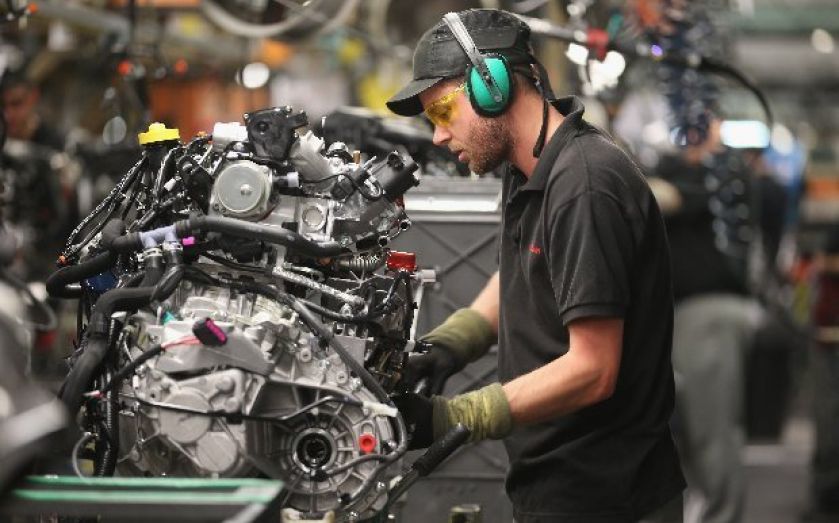Fears of a faltering Eurozone recovery as industrial production shrinks 1.1pc

Further evidence that the fragile Eurozone recovery could be beginning to splutter emerged today.
Industrial production in the 18-member euro area fell sharply by 1.1 per cent in May, the largest monthly drop since September 2012, according to figures released by the EU's statistics agency Eurostat this morning.
The data confirmed analyst fears that a significant shrink in industrial output had been coming, especially as the economic powerhouses of Germany, France and Italy had already reported some surprisingly large contractions in May. Economists had actually predicted a slightly bigger dip of 1.2 per cent. May's figures were up 0.5 per cent from the same month last year.
EU industrial production has been volatile in 2014 and analysts acknowledge that these figures can be erratic from month to month. April numbers had shown a 0.7 per cent increase, rebounding from a 0.4 dip in March.
However the marked fall in industrial output is stoking fears that the Eurozone recovery is stalling before it has even begun to really gain steam.
Data so far points to a split recovery, but the May falls were widespread. German output fell by 1.4 per cent month-on-month, French by 1.3 per cent Italy’s by 1.2 per cent and Spain’s contracted by 0.9 per cent. Portugal, engulfed in a banking crisis that rocked global markets last week, suffered the biggest drop in industrial output, down 3.6 per cent month-on-month.
The UK also recorded a shock slump in output for May, with a 0.7 per cent fall.
A decline in second quarter GDP?
The latest survey data shows a loss of momentum, although it does still point to expanding activity. This appears to be denting hopes that GDP growth for the common currency area is on course for a rapid improvement in the second quarter, as had been hoped, following a lacklustre 0.2 per cent expansion in the first three months of the year.
"There is now a grave danger that the sector contracted in the second quarter thereby limiting Eurozone GDP growth," said Howard Archer, chief UK economist at IHS Global Insight.
"It does appear that the Eurozone manufacturing sector is facing a tough task to generate and sustain meaningful expansion."
According to Archer, in the absence of any revisions to the current data, "it will need Eurozone industrial production to have increased by 0.8 per cent month-on-month in June just to have been flat quarter-on-quarter in the second quarter".
